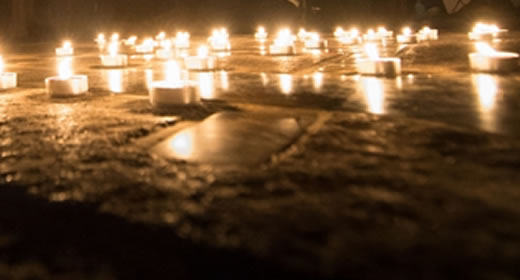
Zouheir Al Ghreiwati looks toward the future of Syria
Zouheir Al Ghreiwati's (BA '14) native land is a warzone.
Hailing from Damascus, Syria, Al Ghreiwati lived in the now war-torn nation until his junior year of high school. Despite the mainstream media's portrayal of Syria as a country divided by sectarian lines, Ghreiwati believes the civil war is driven not by religious hatred, but by the Syrian people's desire for democracy.
"What really saddens me is when the media turn it into a sectarian conflict with different religions fighting against each other," Ghreiwati said. "The groups the U.S. government labeled as terrorists only make up a small part of what the actual revolution is."
Growing up in Damascus, it never mattered who was from one religious sector or another, according to Ghreiwati. He said his neighbors came from a variety of religious and ethnic backgrounds and there was never any sectarian hatred.
While Ghreiwati believes that the current Syrian President Bashar al-Assad should step down, he doesn't take issue with a minority ethnic group, such as Assad's Alawite ruling class, governing Syria. He says as long as a "leader is doing what he is supposed to, it shouldn't be a problem."
The Syrian Civil War has dragged on much longer than its sister uprisings in Libya, Egypt, and Tunisia, and has been far bloodier. Ghreiwati said the failure to find a resolution can be blamed on the international community, which has flip-flopped its support of both sides.
"I think because the international community hasn't said 'this is what we want, this is what will happen,' both sides keep getting weapons and they're at a stalemate right now," he said.
His support of the rebels, however, is also shaky. Their commitment to violence, according to Ghreiwati, has not brought them any closer to removing Assad. A political solution, like the removal of President Mubarak in Egypt, is more attractive to Ghreiwati.
"I'm not behind a militarized solution," he said. "The rebel forces do not speak under a unified force, there is no such thing as one Free Syrian Army—it's a coalition of different militias and some of them are doing horrific things."
A number of his friends and their family members have been kidnapped over the past year, and it is unclear who is responsible—neither side wants to cast their cause in a bad light. The ransacking of homes, factories, and businesses is also common, according to Ghreiwati.
Ultimately, Ghreiwati hopes to return to Syria after he gets his MBA and some work experience in the United States. He hopes to use the skills he's learned at the Ford School to develop economic policies that would help rebuild his homeland.
"I chose the Ford School because the program helps me see economic stimulation from the government perspective, but is also flexible enough to allow me to take classes in the economics, business, and urban planning departments for my focus area," he said. "The mix of public and private sector focus classes helps build a well-rounded image of how to rebuild Syria."
Ghreiwati is an elected member of the Ford School's Undergraduate Council and is part of an off-campus club called Jusoor, which aims to bring Syrian students to universities in Europe and North America.
Photo: Michigan Daily/Paul Sherman
Below is a formatted version of this article from State & Hill, the magazine of the Ford School. View the entire Spring 2013 State & Hill here.